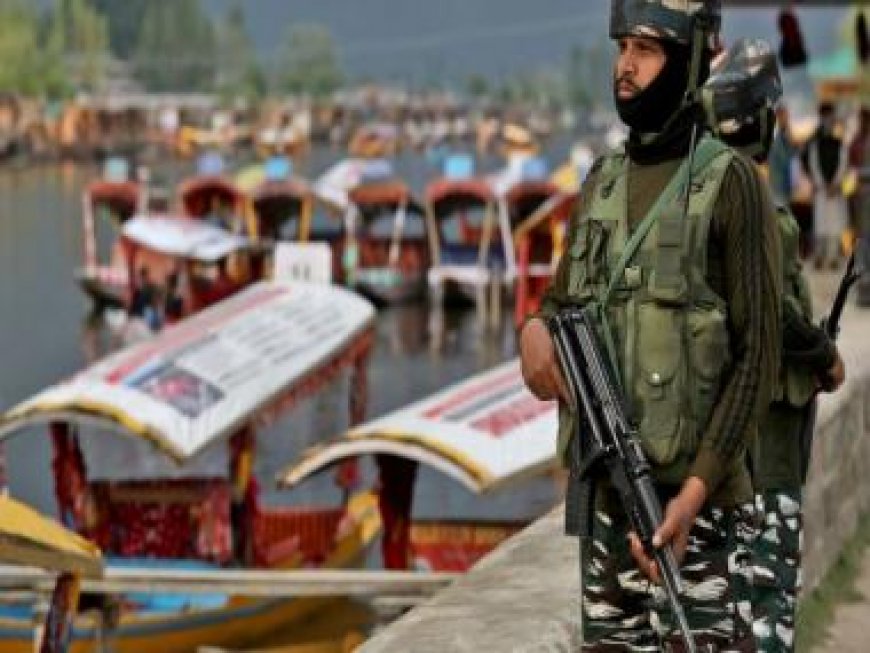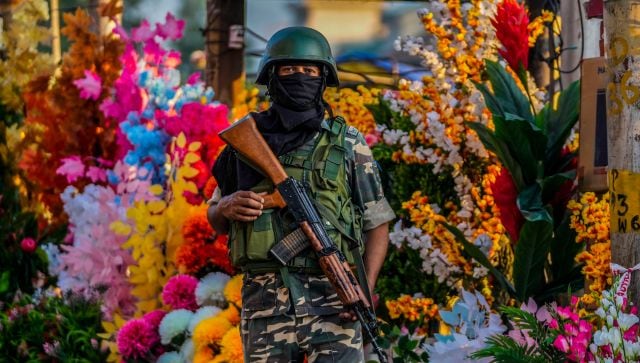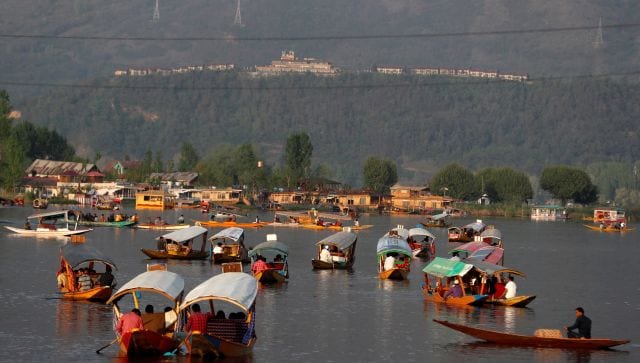4 years of Article 370 abrogation: Has security situation improved in J&K?
4 years of Article 370 abrogation: Has security situation improved in J&K?

Today (5 August) marks the fourth anniversary of the abrogation of Article 370, which provided special status to Jammu and Kashmir. It was also on 5 August 2019 that the then state was bifurcated into two Union Territories – Jammu and Kashmir (with legislature) and Ladakh (without legislature).
Justifying the Central government’s decision, Union home minister Amit Shah had said that the removal of Article 370 was necessary to end terrorism in J&K. Earlier this February, Shah said that the number of terror incidents has fallen sharply post the abrogation. “Today I can say with satisfaction that terror incidents in Jammu and Kashmir have reduced drastically after the abrogation of Article 370. And a record number of tourists visit Jammu and Kashmir. It is a matter of satisfaction,” the home minister said, as per Indian Express.
So, four years later, how has the security situation changed in the UT? Let’s take a closer look.
Stone-pelting incidents
According to a report by J&K Police headquarters in Srinagar, a major decline has been seen in stone-pelting incidents post the revocation of Article 370.
From 5,050 such incidents before the abrogation, the number has come down to 445, a “remarkable” plunge of 92 per cent, Greater Kashmir cited the police report as saying.
“This decrease signifies improved public order and a more peaceful environment,” the police said.
As per the Ministry of Home Affairs (MHA) data, 618 incidents of stone pelting were reported in the Valley during the January-July period in 2019. This fell to 222 incidents over the same period in 2020, and further to 76 in 2021, reported Indian Express.
What about militancy?
As compared to 930 militancy incidents that rocked the Valley in the three years prior to the scrapping of Article 370, only 617 such incidents were reported in the three years post the revocation, reported The New Indian Express (TNIE).
Active militancy has abated in J&K after the Centre revoked Article 370.
Citing the official figures, Scroll reported in January this year that the number of active militants has decreased from 250 at the end of 2019 to “little above 100” towards the end of 2022. The security forces are aiming to bring down this to below 100.

A total of 750 militants have been killed by security forces in the UT over the last four years, as per the digital news outlet. From 1 January to 5 August this year, 35 militants were neutralised by security forces in several operations. Last year, 186 militants, including 56 foreigners, were killed, as per Deccan Herald (DH).
The number of local youths joining militant groups has also reduced. From 206 in 2018 and 143 in 2019, only 100 Kashmiri youth were recruited by militants in 2022, reported Scroll.
According to police data, 174 police and security personnel were killed in militancy violence in Kashmir between 5 August 2019 to 4 August last year, a decrease from the 290 personnel who were martyred over the three years before the revocation, reported TNIE.
Loss of civilian lives during militancy violence has also gone down. “110 civilians were killed in three years post Article 370 revocation while 191 civilians died in militancy violence in three years before Article 370 abrogation,” TNIE cited the police data as saying.
The MHA data showed that more over-ground workers (OGWs) of militant groups were arrested, with 82 in 2019 (January-July) to 178 over the same period in 2021, reported Indian Express.
ALSO READ: J&K: How Amit Shah abrogated Article 370 and deftly managed the fallout
Overall law and order situation
A 32 per cent decline was reported in encounters and counter-terrorism operations, from 539 in the pre-abrogation period to 369 after the revocation.
“The number of civilians killed in terrorist violence reduced from 155 in the pre-Article 370 period to 138 in the post-Article 370 period, reflecting a 11 per cent decrease. This decrease indicates improved security measures and a more effective counter-terrorism strategy to protect civilians,” according to the J&K police report, reported Greater Kashmir.
A significant reduction in civilian casualties during law and order situations has also come to light. No such instances were recorded post the abrogation, as compared to 132 before, Greater Kashmir reported citing police data.

The number of IED blast figures remained unchanged, with 19 incidents reported both pre and post-abrogation period. As Hindustan Times noted, “That the number has not increased to a new mark indicates better security measures, intelligence gathering and a better approach to counter-terrorism.”
From 302 before, just 31 hartal/bandh calls were issued post the revocation period. Another positive impact on public safety of the historic decision is seen in the fall of grenade attacks, from 162 before to 138 after.
“This decrease indicates improved socio-political stability and a reduced impact on daily activities due to strikes or shutdowns,” Greater Kashmir cited the police report as saying.
Moreover, compared to the 10 months before the Article 370 revocation, government data says there was a 32 per cent decline in “acts of terrorism” between 5 August 2019 and 6 June 2022, reported Indian Express.
With inputs from agencies
What's Your Reaction?



























































